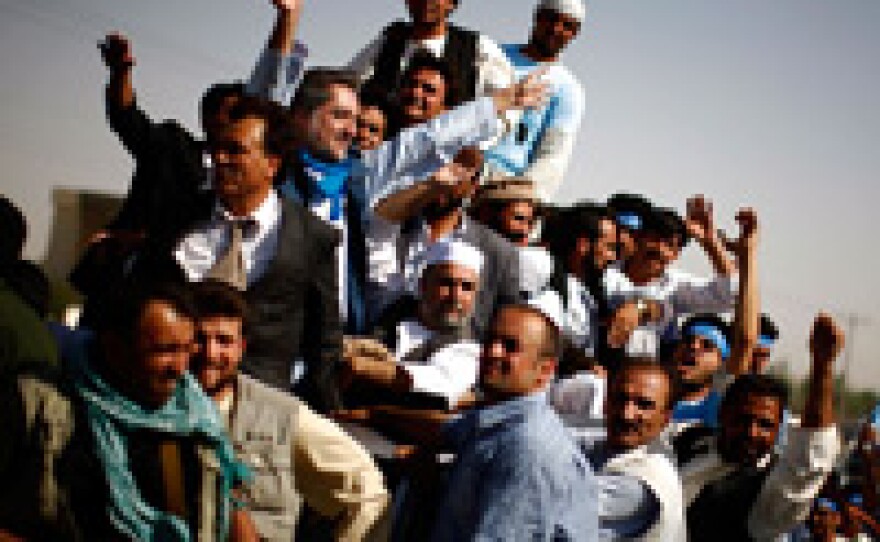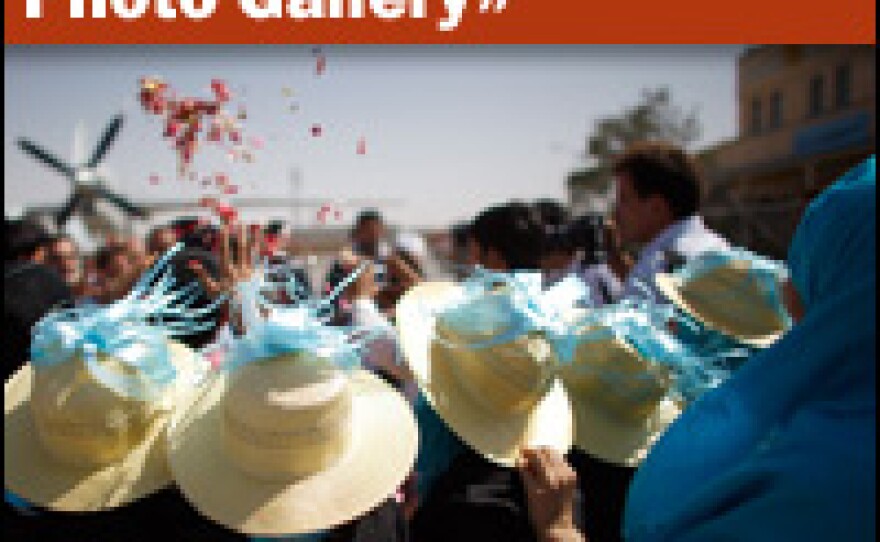
Afghanistan's second presidential election takes place on Aug. 20. About half of the country's estimated population — some 15.6 million Afghans — have registered to vote for the 41 candidates.
Presidential candidates registered in May, about the same time the Obama administration began increasing the U.S. military contingent in Afghanistan in a renewed effort to counter the Taliban insurgency, particularly in the volatile south. The candidates are campaigning mainly in northern, central and western Afghanistan.
Predictions: Most Western and Afghan observers in Kabul believe the election is President Hamid Karzai's to lose, despite the incumbent's waning popularity. But a growing number of skeptics here also predict the president will not get enough votes for a clear victory on Aug. 20.
Runoff Possible: If Karzai fails to get a majority of the votes on that day, a runoff election will be held. Afghan officials say a second election would take place a short time after the Islamic holy fasting month of Ramadan, which ends in late September.
Campaigning: Each candidate is entitled to use one of Afghanistan's aging fleet of Russian-made military helicopters and propeller planes to travel. Every candidate is also accompanied by about 30 police officers for protection. A few also travel by car, although the frequent roadside bombs, gun attacks and robberies on Afghanistan's highways make this a dangerous option.
The Candidates: Among the 41 candidates are medical workers, engineers, lawmakers, clerics, professors, retired generals, a former Taliban commander, former members of Karzai's cabinet, and Karzai himself — an activist who lived in exile working against the Soviet occupation and later the Taliban before returning in 2001 during the U.S.-led invasion.
Two of the candidates are women. One is a doctor who is the widow of a slain aviation minister and the other, a psychologist who serves in Afghanistan's parliament.
There are no political parties in Afghanistan, so candidates rely heavily on ethnic and tribal connections, as well as their links to popular and powerful leaders — dead or alive — to entice voters.
The leading candidates are:
Copyright 2022 NPR. To see more, visit https://www.npr.org. 9(MDAzMjM2NDYzMDEyMzc1Njk5NjAxNzY3OQ001))







